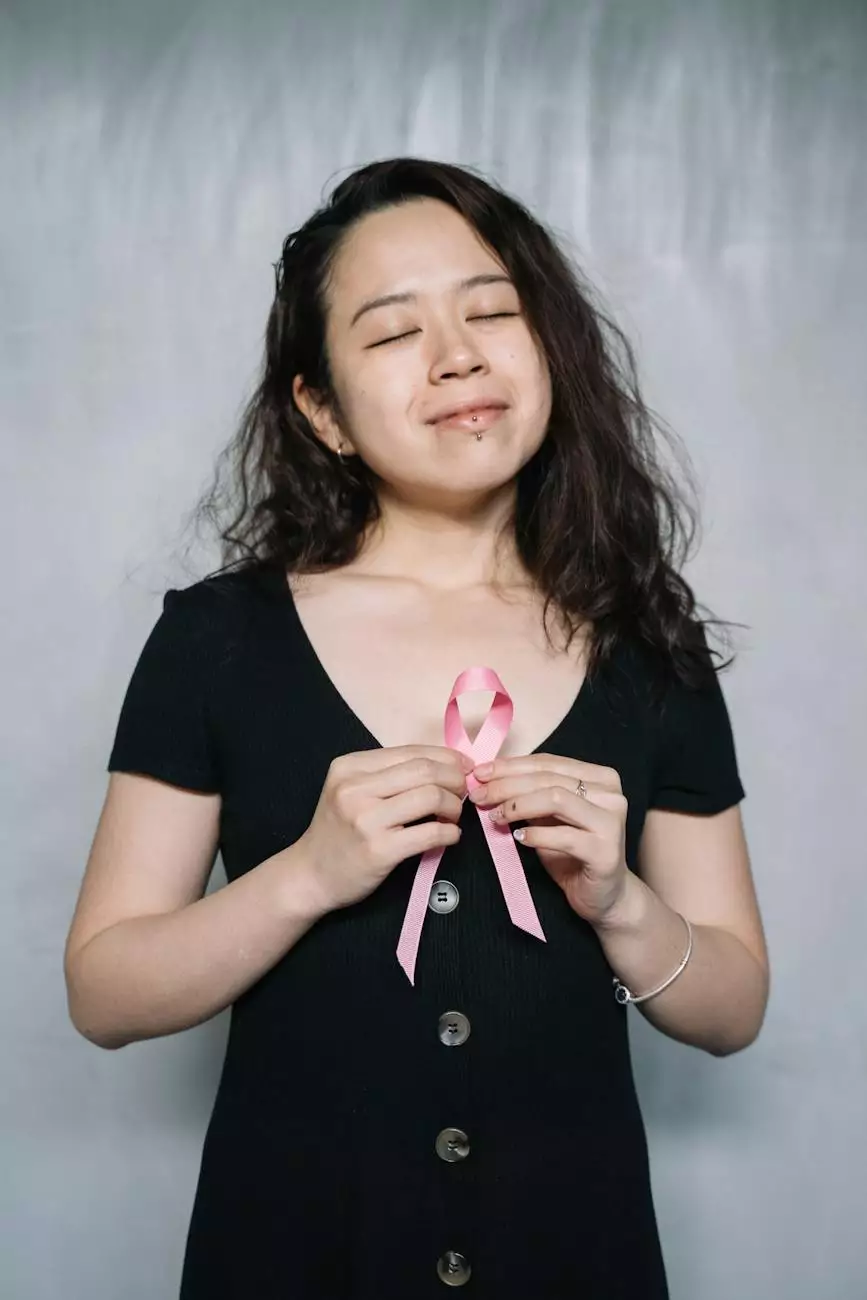Lake Norman OB/GYN Comes Together for Breast Cancer Awareness
Cancer Care
Welcome to Lake Norman OB/GYN, where our team is dedicated to promoting women's health and raising awareness for important causes such as breast cancer. In this article, we will discuss the symptoms, risk factors, and treatment options for breast cancer. Our goal is to provide you with comprehensive information to help you better understand this disease and empower you to make informed decisions about your health.
The Importance of Breast Cancer Awareness
Breast cancer is the most common cancer among women worldwide, affecting millions of lives each year. It is crucial to raise awareness about this disease to ensure early detection and improve survival rates. By staying informed and spreading awareness, we can reduce the impact of breast cancer on individuals and communities.
Understanding Breast Cancer
Breast cancer occurs when abnormal cells in the breast grow and divide uncontrollably, forming a tumor. These tumors can be benign (non-cancerous) or malignant (cancerous). Malignant tumors have the potential to spread to other parts of the body if left untreated.
Signs and Symptoms
Early detection of breast cancer is vital for successful treatment. Recognizing the signs and symptoms can help ensure timely medical intervention. Common signs of breast cancer include:
- Lump or thickening in the breast or armpit
- Changes in breast size, shape, or texture
- Unexplained breast pain or tenderness
- Nipple discharge
- Changes in the nipple, such as inverted or dimpled appearance
It is important to note that these symptoms may not always indicate breast cancer, but it's crucial to seek medical advice if you notice any changes in your breasts.
Risk Factors
While the exact cause of breast cancer is unknown, certain factors increase a person's risk of developing the disease. These risk factors include:
- Age - The risk of breast cancer increases with age, especially after 50.
- Family history - Having a close relative, such as a mother or sister, with breast cancer increases the risk.
- Genetics - Certain inherited gene mutations, such as BRCA1 and BRCA2, are associated with a higher risk of breast cancer.
- Hormone levels - Prolonged exposure to estrogen, a hormone found in higher amounts in women, can increase the risk.
- Reproductive factors - Early menstrual onset, late menopause, or never having children are linked to an increased risk.
- Previous breast conditions - Having a history of certain benign breast conditions or previous breast cancer increases the risk.
It's important to remember that having one or more risk factors does not necessarily mean a person will develop breast cancer. Conversely, some individuals with no known risk factors may still develop the disease.
Diagnosis and Treatment
Early detection is crucial in improving breast cancer outcomes. Regular breast self-exams, clinical breast exams, and mammography screenings can aid in early identification. If a suspicious lump or abnormality is detected, additional tests such as a biopsy may be recommended.
Once diagnosed with breast cancer, treatment options depend on various factors, including the stage of cancer, tumor characteristics, and overall health. Common treatment approaches include:
- Surgery - The surgical removal of the tumor, either through a lumpectomy (removal of the tumor and a small portion of surrounding tissue) or mastectomy (removal of the entire breast).
- Chemotherapy - The use of medications to destroy cancer cells throughout the body, often administered before or after surgery.
- Radiation therapy - The use of high-energy x-rays or other particles to kill cancer cells and shrink tumors.
- Hormonal therapy - The use of medications that interfere with hormone production to prevent cancer cells from growing.
- Targeted therapy - The use of drugs designed to target specific abnormalities in cancer cells.
Treatment plans are tailored to the individual and may involve a combination of these approaches. It's important to consult with a qualified healthcare professional who can guide you through the decision-making process and help develop a personalized treatment plan.
Raising Awareness and Supporting Those Affected
At Lake Norman OB/GYN, we are passionate about raising breast cancer awareness not only during Breast Cancer Awareness Month but throughout the year. We collaborate with various local organizations, community groups, and medical professionals to educate women about breast health and the importance of regular screenings.
We also provide support to those affected by breast cancer, offering counseling services, support groups, and resources to help navigate the emotional and physical challenges associated with the disease.
Get Involved
If you would like to join us in our mission to raise breast cancer awareness, there are several ways you can get involved:
- Spread the word: Share information about breast cancer and the importance of early detection with your friends, family, and colleagues.
- Participate in events: Attend local breast cancer awareness events, fundraisers, or walks to show your support.
- Volunteer: Consider volunteering at local organizations that support breast cancer patients and survivors.
- Donate: Contribute to reputable breast cancer research organizations to help accelerate advancements in detection, treatment, and support services.
Remember, together we can make a difference in the lives of those affected by breast cancer. Stay informed, get screened regularly, and support breast cancer awareness initiatives in your community.
© 2021 Bowling Orthopaedics. All rights reserved.




